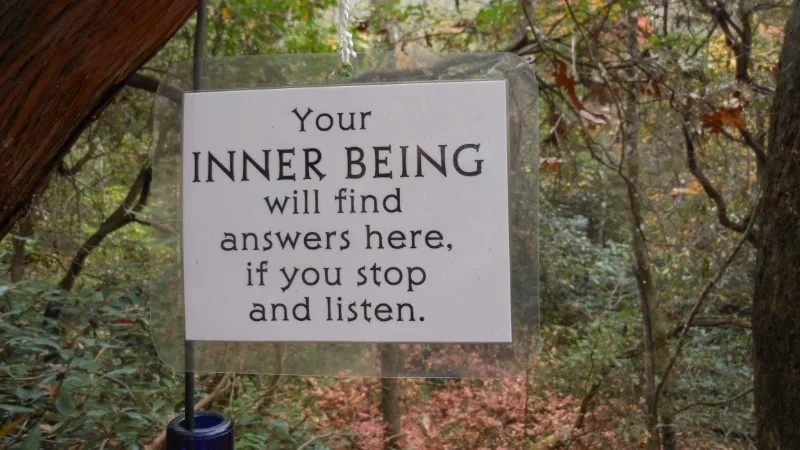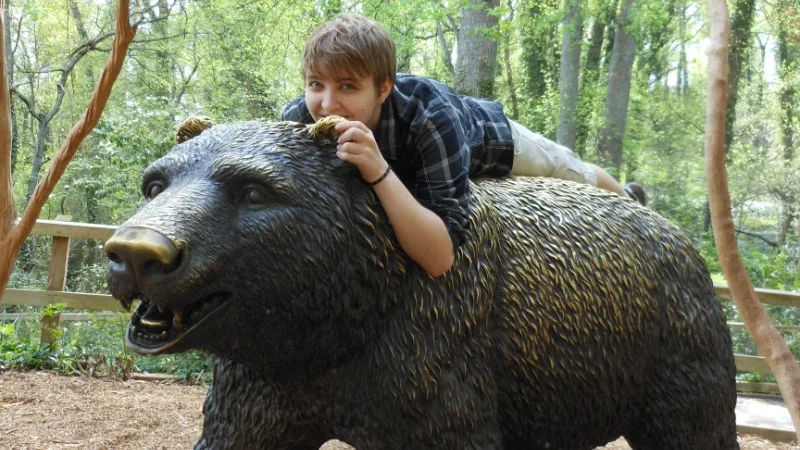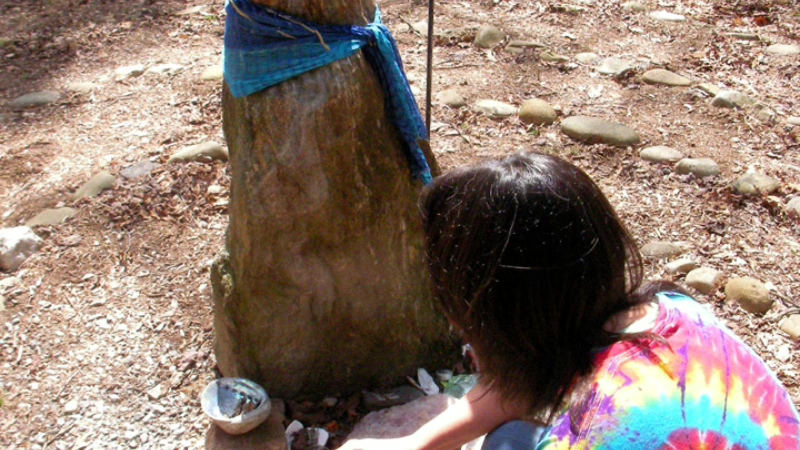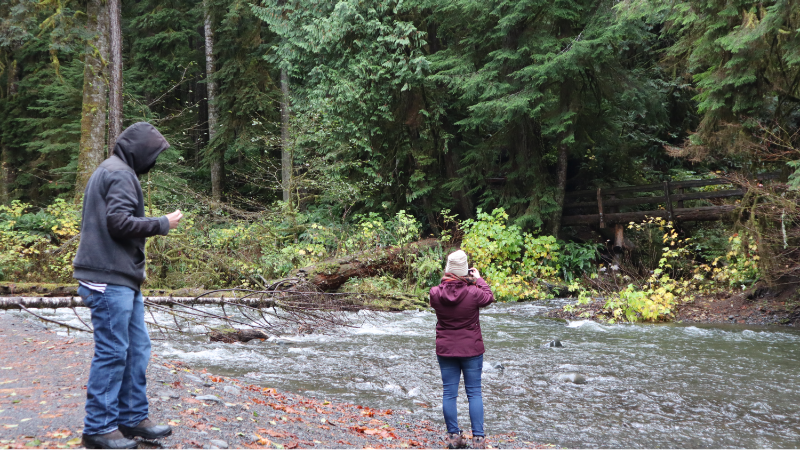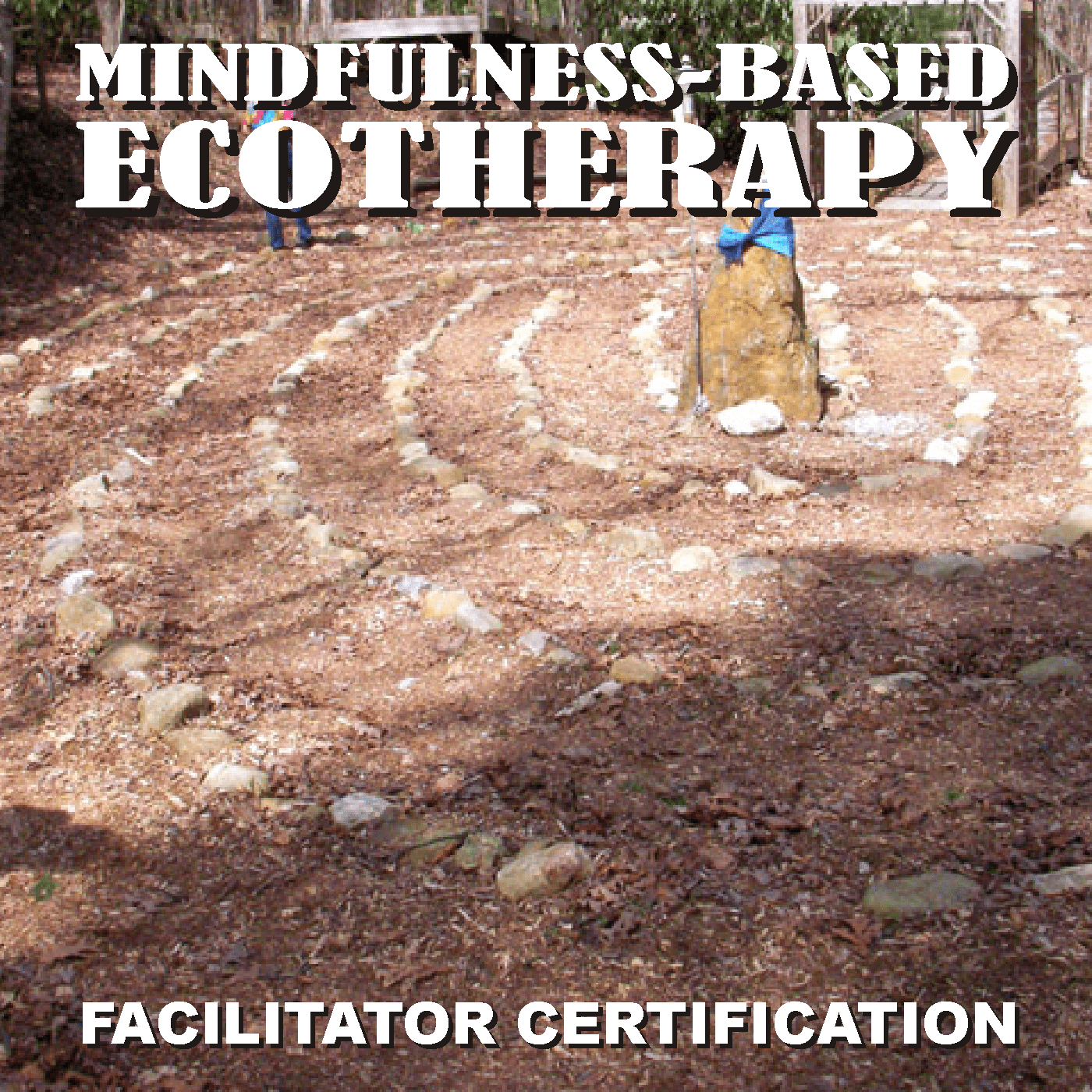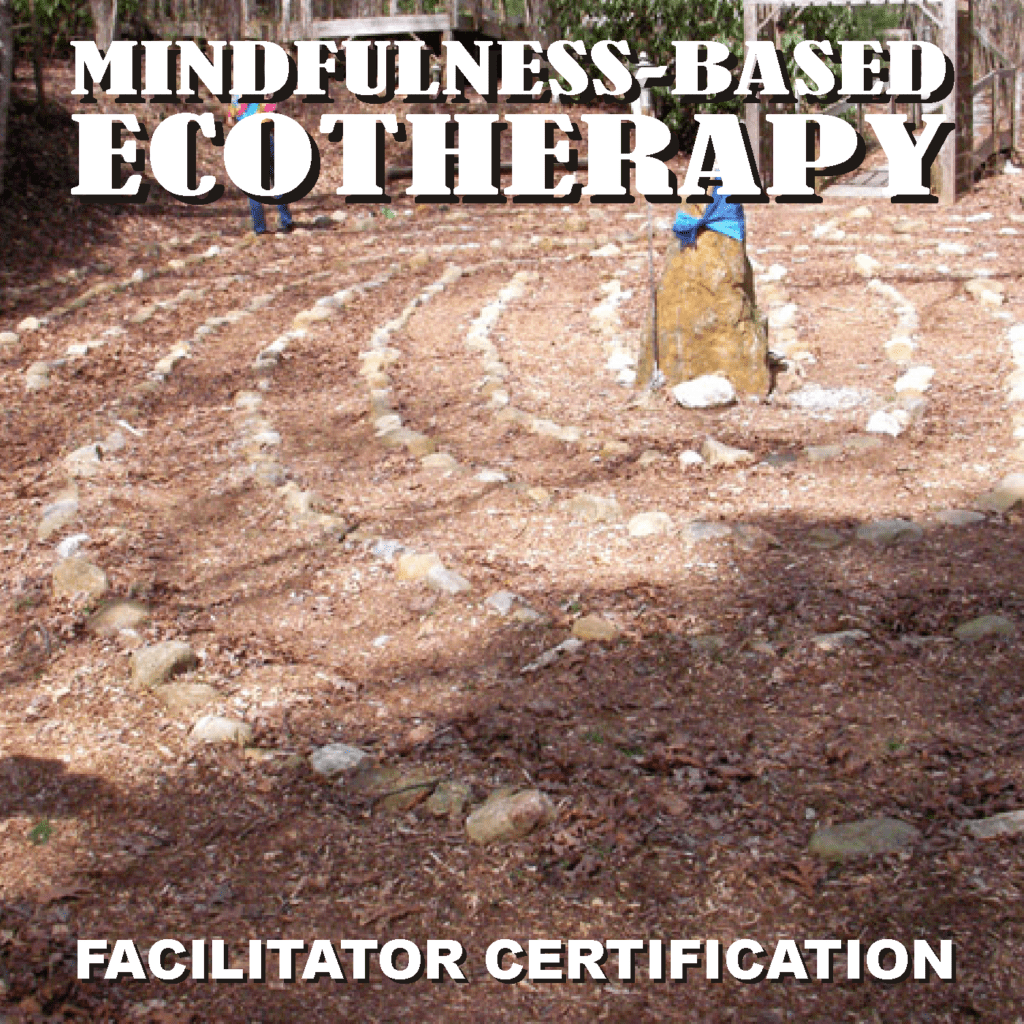
Click here to purchase
The Ecospirituality Workbook is now available at Amazon and at Elder Grove Media!
As the human race has become increasingly urbanized, we have come to spend less and less time in natural settings. Many of us now live in cities or suburbs rather than in rural areas. Even so, we still hear the calls of nature. The wilderness cries out to something in our blood. Although the industrial revolution forced us into an urban way of living, we were creatures of the wilderness for millennia before that. Evolution has hardwired our brains for the wild.
This ecospirituality program is based in part on the principles of deep ecology.
Arne Naess was a Norwegian philosopher and founder of the Deep Ecology movement. He cited Rachel Carson’s book Silent Spring (a book about how pesticides like DDT upset the delicate balance of nature) as instrumental in his development of the philosophy of deep ecology, which states that humans are not privileged above other living things and that all living things should be treated with equal respect and equal ethical consideration. Naess believed that all living things have an equal right to thrive and to survive.
The Ecospirituality Workbook is based in part on Deep Ecology. The Deep Ecology movement founded by Naess echoes the Gaia Hypothesis, which says that the Earth herself is a living thing and we are all a part of the much larger organism that is Gaia, the Earth. Although NASA scientist James Lovelock is credited with creating the Gaia Hypothesis, Native Americans, and other indigenous peoples all over the world, had such a concept for thousands of years before Lovelock came along.
Scientists are in the process of rediscovering what the indigenous peoples of the Earth knew all along: That the planet is a living organism and that we are all a part of the web of life. We are all connected. This idea of the interconnectedness of all things is what Naess meant by “deep ecology,” and deep ecology is at its core a spiritual movement.
If we are all connected, then what we do to the web of life, we do to ourselves. If we poison the water, then we drink the water, we take the poison into ourselves. If we pollute the food with pesticides, then eat the food, we take the pesticides into our own bodies. If we pollute the air, then breathe in the air, we take our own pollutants into our lungs. If we fatten our beef animals with hormones, then eat the beef, we take the hormones into ourselves. If we poison the minds and souls of our neighbors with hatred, anger, and bitterness, then interact with those neighbors in negative ways, we take hatred, anger, and bitterness into ourselves as well.
The deep ecology of The Ecospirituality Workbook teaches us to be one with nature. This oneness with nature is the ultimate form of spirituality. This is true even for agnostics or atheists. We don’t have to believe in supernatural beings to realize that nature is something larger and more transcendent than ourselves. The “divinity” in ecospirituality is nature itself. This is true whether or not we choose to personify nature as a separate, conscious, and divine entity.
We are all interdependent, and ecospirituality teaches us that if we cannot live in a sustainable, ecological way, then the human race will have no future. This planet has limited resources, and we currently don’t have anywhere else to go. Eventually everything will run out, and when this happens, how will we survive? The only way that the human race can survive is to embrace a way of life that honors all life on the planet. Such a way of life is what ecospirituality entails.
What is ecospirituality?
The word “spiritual” comes from the Latin spiritus, which means, “breath.” Originally, that which was spiritual was simply that which was breathtaking. From this perspective a spiritual experience is an awe-inspiring experience. People of all religions…or none…can experience such awe-inspiring events. You can be spiritual without being religious. Spirituality doesn’t rely on a set system of teachings or dogmas. Spirituality is the joy of being present in the moment and experiencing the awe and wonder of living.
In my own personal experience, those breathtaking moments most often occur when I have made some sort of connection. It could be a connection with nature, or with others, or with my own inner self. Such a connection opens up a channel of communication, or perhaps communion. Such a connection allows me to feel that I am a part of everything, and everything is a part of me. It produces a sense of oneness with the universe. It is the ultimate sense of connection.
For the purposes of this program and this workbook, ecospirituality is broken down into twelve distinct skills. These skills are created to foster that sense of connection to nature, to others, and to your own higher self. Each session of the The Ecospirituality Workbook and the Ecospirituality Program will review and teach one of these skills. A description of each of these skills follows.
The Twelve Skills of the Ecospirituality Workbook
The Ecospirituality Workbook focuses on achieving mindful states in nature. It is through these moments of connection that ecospirituality works its magic. There are twelve skills of ecospirituality. The first six skills are mindful skills. The remaining six skills are ecospirituality skills.
Mindful Awareness is a way of tuning in to what is happening right now, at this moment. Most of the anxiety we experience in life is either about things that happened in the past or things that may or may not happen in the future. When we learn to live in the present moment, we can make conscious choices in the present about what anxious thoughts and feelings to give our attention to, and which to let go of.
Living in the Now means allowing yourself to be in this moment, here and now. It is a shift from Doing Mode into Being Mode. The present is really the only time you can ever experience. The past is gone, and the future has not yet arrived. Here in the now is when we can make positive changes in our lives by making conscious choices about our lives and about our place in the world.
Ecospirituality teaches us how to let go of stress and anxiety through the power of mindful acceptance. Mindful acceptance is the knowledge of the concept that we must accept the things we cannot change. It is the realization that we cannot change others, therefore we can only change ourselves. When we have learned mindful acceptance, we have learned the art of Letting Go.
Acceptance teaches us that we are not our thoughts, and that we are not our emotions. We are something different. That something different is the True Self. Radical acceptance teaches us that it’s not our circumstances that cause us anxiety. It’s what we choose to believe about our circumstances that causes anxiety. When we can accept what we feel without the need to respond or react in ways that lead to negative consequences, we have learned Radical Acceptance.
Wise Mind is the joining of Rational Mind and Emotional Mind in balance and harmony. When we can balance Rational Mind and Emotional Mind, we will achieve Wise Mind. From Wise Mind we gain the wisdom to know what we can change and what we must accept. Wise Body is the acceptance that mind and body are one and the same. By paying attention to what our bodies tell us about our emotional states, we can choose in the present how to respond. When we accomplish this, we have mastered Wise Body.
We all have two concepts of self: The perceived self and the ideal self. The perceived self is how we see ourselves now. The ideal self is who we wish to be. It is our highest aspiration for ourselves. The closer together the perceived self and the ideal self are, the fewer problems we have. The further apart they are, the more the perceived self asks, “why can’t I be more like my ideal self?” The True Self is the person we would be if we could get out of our own way. It is the highest form of the ideal self. Centering allows you to connect with your own True Self through ecospiritual exercises. The more centered you are, the more your perceived self and your True Self integrate and align. The more this happens, the more we are able to live the lives we were meant to.
The original meaning of “spiritual” was “that which is breathtaking.” From this perspective, spiritual moments are those awe-inspiring, breathtaking moments we all experience from time to time. Spirituality is all about connectedness. Ecospirituality can help you achieve personal spiritual growth through fostering a sense of connection to nature, to others, and to your own True Self. In short, Connecting facilitates spiritual experiences.
We all have personal stories called “my life.” These personal narratives are the fables we tell ourselves about what our lives mean and where they’re going. If our stories are going well, then we generally have no problems. On the other hand, if our personal narratives aren’t going well, we tend to develop problems. The good news about the story of our lives is that we are the only authors. If we don’t like the way the story is going, we have the power to rewrite it at any time. Ecospirituality teaches you how to pay attention to your own stories and to change them if you wish by using Nature as Metaphor.
Our ancestors lived at peace with nature. They knew the seasons. They knew when to sow and when to reap. They knew how to read the weather by signs. The lessons our ancestors learned about nature haven’t gone away. They’re still there, waiting in the forest like an open book. All we have to do is to learn how to read it using Nature as Teacher. When we allow nature to teach us in this manner, we unlock a powerful tool to discover more about nature and about ourselves through ecospirituality.
People who go into the woods become calmer, more relaxed, less stressful, and healthier. Ecospirituality can be used to tap into the nurturing and healing power of nature. When we allow nature to nurture us, we are healed. When we nurture the nature around us, we set up a reciprocal cycle of nurturing that allows us to become one with nature. When we learn this skill, we are able to embrace Nature as Nurture.
Anyone who has ever gone on a vacation or even just a walk in the woods or in a park, or enjoyed the company of an animal companion, knows that nature has the power to heal. Ecospirituality helps you to connect to the healing power of nature using evidence-based activities in natural environments. This skill allows you to accept the power of Nature as Healer.
The ultimate goal of the Ecospirituality program is to realize and acknowledge your True Self, and to live in it. Doing so allows you the opportunity to re-connect in positive ways with nature, with others, and with yourself. When you learn to do so, you will be Living in True Self; the person you were born to be.
The Ecospirituality Facilitator Certification Program will be available in late summer of 2024! Sign up for our newsletter now to be informed when the program is released!
